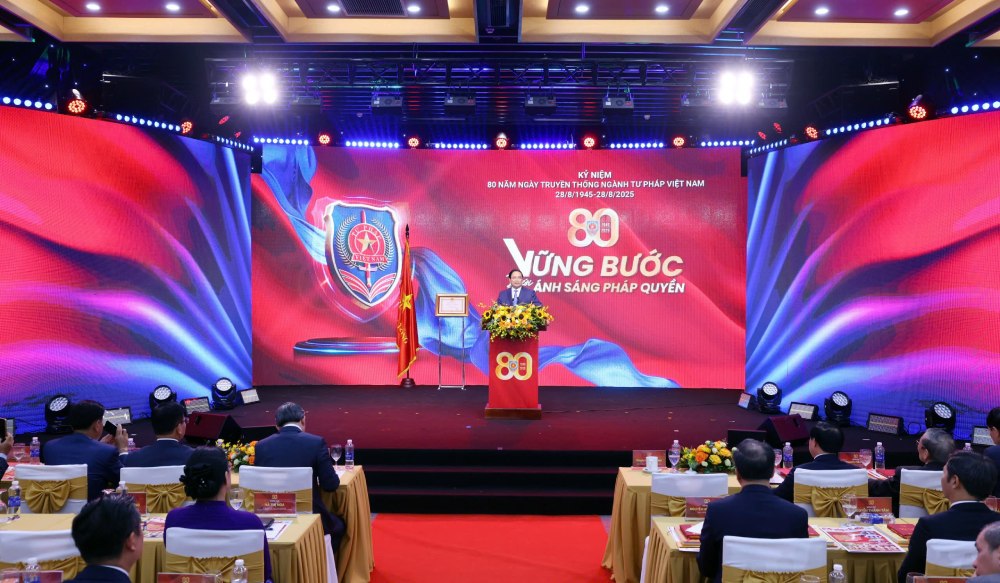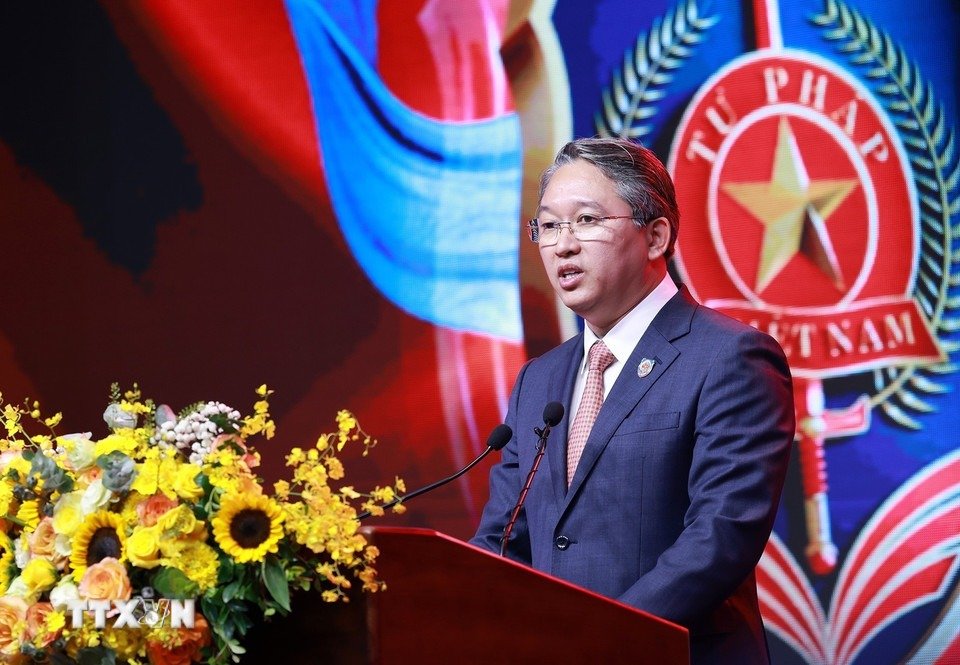On the morning of August 25, in Hanoi, the Ministry of Justice held a ceremony to celebrate the 80th anniversary of the Traditional Day of the Judiciary (August 28, 1945 - August 28, 2025) and the 6th Patriotic Emulation Congress of the Judiciary.
At the ceremony, Politburo member and Prime Minister Pham Minh Chinh, on behalf of the Party and State leaders, awarded the First Class Labor Medal to the Ministry of Justice.

At the ceremony, Minister of Justice Nguyen Hai Ninh emphasized that after 80 years of formation and development, the Ministry of Justice has gone through challenging, ups and downs but also very glorious stages, worthy of President Ho Chi Minh's affirmation "The judiciary is an important agency of the government".
From the early days of building the judicial and legal system of a young country, going through two long-term resistance wars, national reunification, to the period of innovation and integration, the Ministry and the Justice sector have always been steadfast in the goal of serving the Fatherland, serving the People, protecting justice, and upholding the law.
The functions and tasks of the Ministry and the Judiciary are increasingly expanded; the position and role of the Ministry and the Judiciary are increasingly enhanced, actively contributing to the cause of building and defending the Fatherland, building a socialist rule-of-law state of the people, by the people, for the people under the leadership of the Party.
That is a precious tradition, pride and also a noble responsibility for each cadre, civil servant and public employee of the Judiciary today to continue to strive, be creative, contribute, and build the Vietnamese Judiciary to be increasingly strong, modern, integrated, and humane.

The Minister of Justice has summarized some outstanding achievements.
Firstly, the Ministry and the Judiciary have been proactive, advised, and proposed to contribute to perfecting the Party's theoretical thinking and awareness of building a rule of law state, and on institutional and legal construction.
Second, the Ministry and the Justice sector increasingly clearly affirmed their role as the core force in advising on the construction and improvement of the legal system.
The Ministry of Justice also successfully completed the task of presiding over and advising on the development of a number of important laws and codes such as the Civil Code, the Penal Code, the Law on Promulgation of Legal Documents, the Law on Handling of Administrative Violations, the Law on Enforcement of Civil Judgments... and many other important legal documents.
Third, international legal work and international cooperation in law and justice have been implemented more and more effectively, in depth and substantially, contributing to the implementation of the foreign policy of the Party and State, meeting the country's integration requirements in the renovation period.
Fourth, the Ministry and the Justice sector have advised the Government and local authorities at all levels to implement many solutions to strongly innovate the work of organizing law enforcement, raising awareness of law compliance.
Fifth, the work of state management in the fields of judicial administration, judicial support, dissemination, legal education, and legal aid is focused on.
Sixth, the Ministry and the Justice sector have gradually built and developed a unified and professional civil enforcement agency system from the central to local levels, in the direction of strongly transforming the organizational model with comprehensive reform of management methods and operations on the basis of the "electronic judgment enforcement" platform.
Seventh, the work of arranging the apparatus and building the sector is carried out in accordance with the direction of the Central and the Government.











